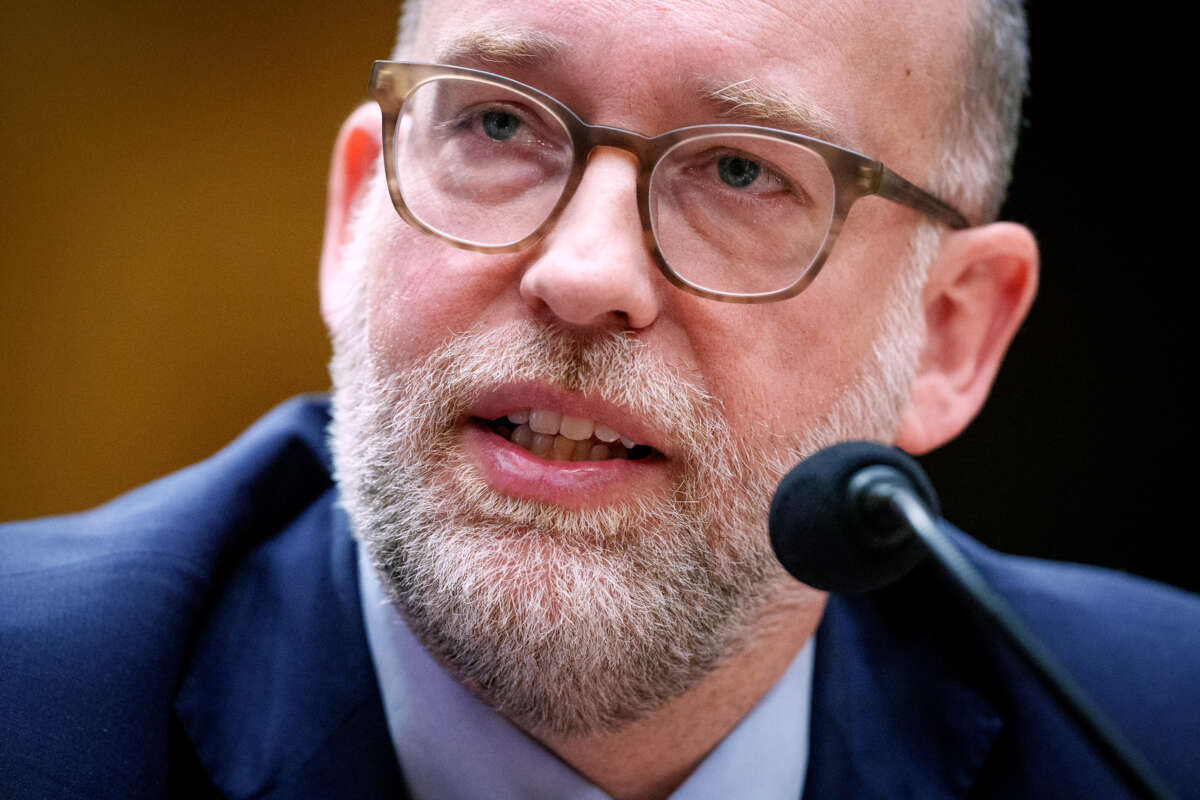U.S. President Donald Trump’s pick to lead the Office of Management and Budget told lawmakers Wednesday that he’s “proud” of the impacts of Clinton-era welfare reform, a Republican-backed legislative change that doubled extreme poverty by stripping government support from some of the nation’s most vulnerable people — including children with disabilities.
Pressed on his record of advocating work requirements for Medicaid recipients, Project 2025 architect Russ Vought told members of the Senate Budget Committee that “one of the major legislations that our side has been very proud of since the 1990s was the impact of welfare reform” and suggested it should be a model for the Trump administration to apply to other federal programs going forward.
“It led to caseload reductions, people getting off of welfare, going back into the workforce,” Vought said of the 1996 reform, neglecting to mention research showing that the law resulted in an explosion of extreme poverty as people were often unable to find jobs after losing benefits.
In response to Vought’s remarks, Sen. Jeff Merkley (D-Ore.) noted that Arkansas’ temporary imposition of work requirements on Medicaid recipients — with a green light from the first Trump administration — was a “failed experiment,” with thousands losing health coverage without any significant increase in employment.
Watch the exchange:
Later in Wednesday’s hearing, Vought — a longtime supporter of Medicaid cuts — said that “we need to go after the mandatory programs,” a category that includes Social Security, Medicare, Medicaid, and the Supplemental Nutrition Assistance Program.
Republicans in Congress have reportedly discussed cutting trillions of dollars from Medicaid to help pay for another round of tax cuts that would disproportionately benefit the wealthiest Americans.
During his time questioning Vought on Wednesday, Sen. Ron Wyden (D-Ore.) said that “the distillation of the Trump economic program is to give tax breaks to all the people at the top, and it’s gonna be paid for by” cuts to Medicaid and federal nutrition assistance.
“We would not characterize our economic program that way,” Vought replied.
5 Days Left: All gifts to Truthout now matched!
From now until the end of the year, all donations to Truthout will be matched dollar for dollar up to $50,000! Thanks to a generous supporter, your one-time gift today will be matched immediately. As well, your monthly donation will be matched for the whole first year, doubling your impact.
We have just 5 days left to raise $50,000 and receive the full match.
This matching gift comes at a critical time. As Trump attempts to silence dissenting voices and oppositional nonprofits, reader support is our best defense against the right-wing agenda.
Help Truthout confront Trump’s fascism in 2026, and have your donation matched now!
